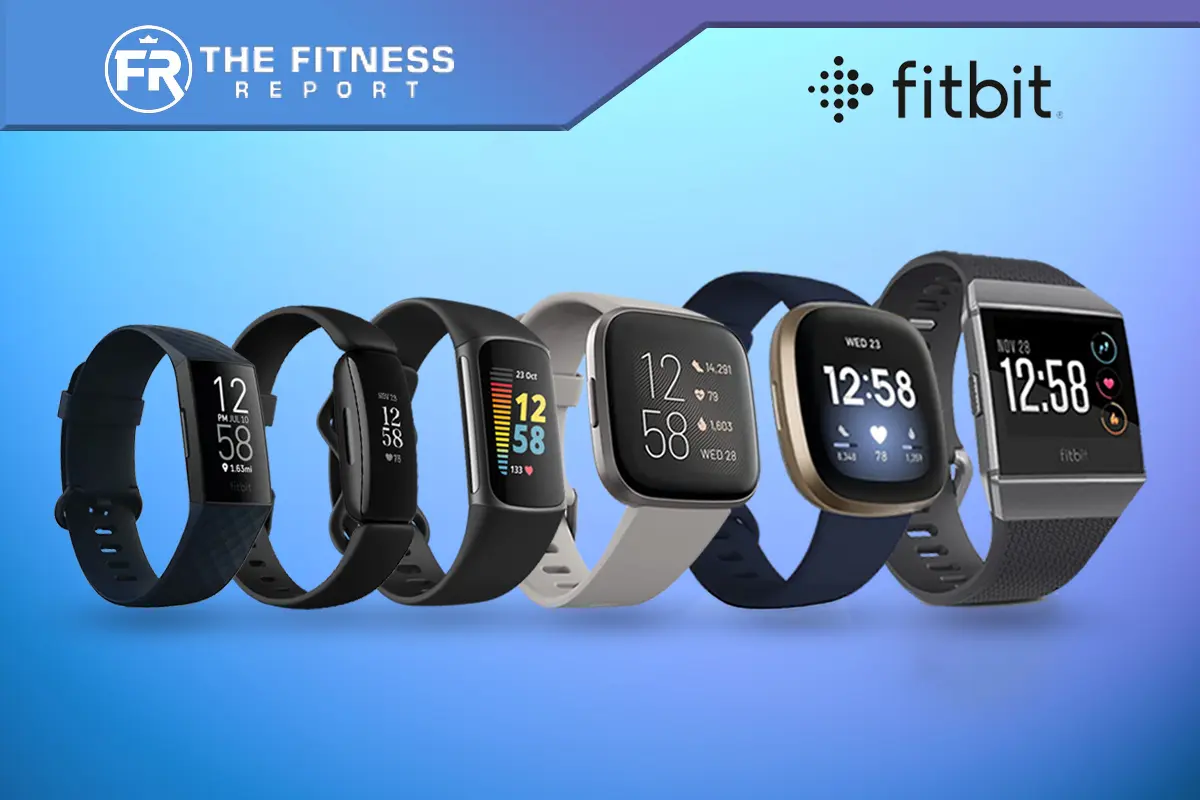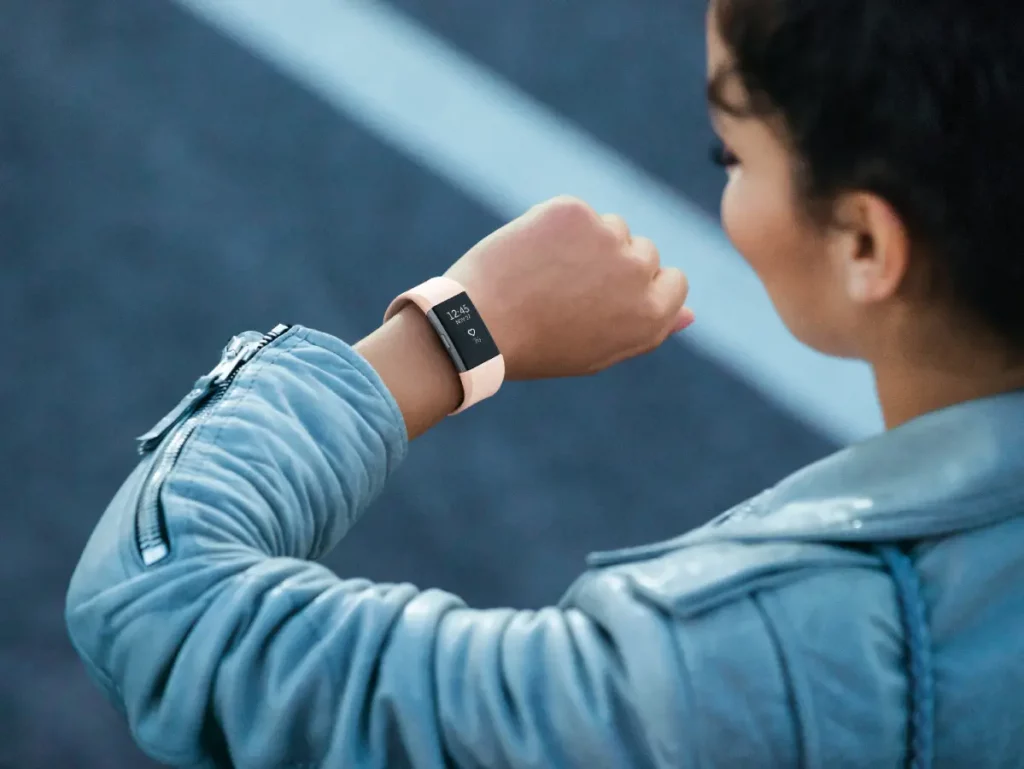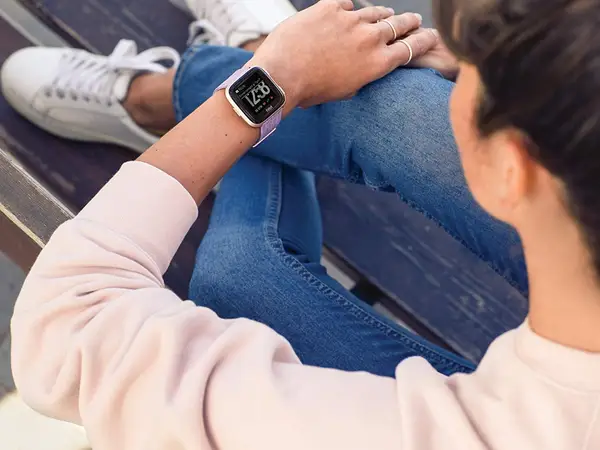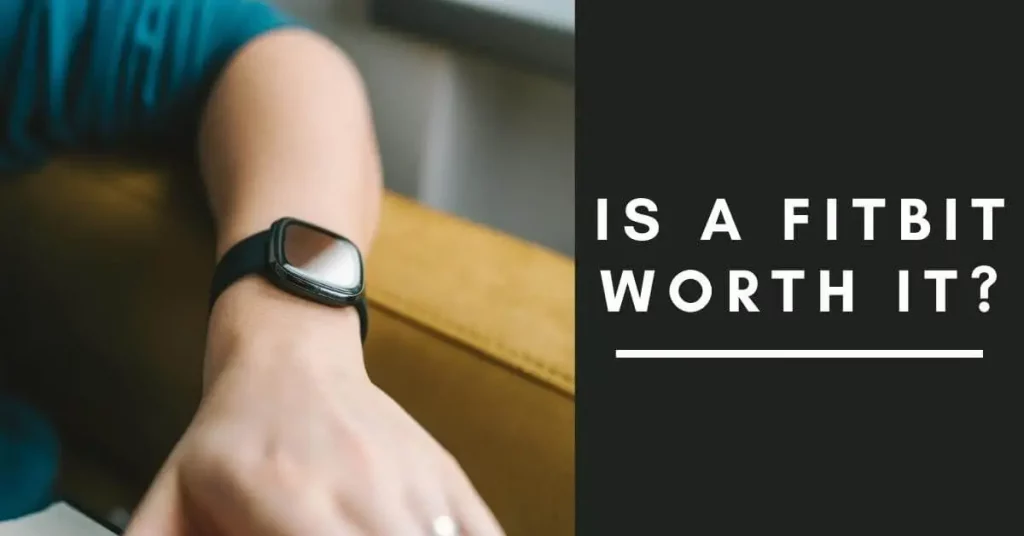Is A Fitbit Worth It?
Owning a gadget that tracks your health and fitness goals sounds like a fantastic idea. While searching for one, you would have come across the name “Fitbit” being recommended by various online reviews. But is a Fitbit worth it?
This article provides insights on all the fitness-related features Fitbit offers and whether investing in one is the right decision or not.
What Is A Fitbit?
A Fitbit is a fitness tracking device that measures your daily physical activity levels to help you achieve optimal health goals. The Fitbit is proprietary to an American fitness and consumer technology company with the same name. Their first wearable fitness technology was the Fitbit tracker, launched in 2009. Since then, Fitbit has gained popularity among fitness enthusiasts to record and maintain their workouts and fitness stats. Various versions of Fitbit have been released and made their way into the ever-growing market, and more are expected to come in the upcoming years.

The Fitbit company intended to design these wearables to enable technology to benefit human health. Two Fitbit wearables cater to different
requirements; Fitbit watches and Fitbit trackers. Both of these variations mainly offer the same tracking features. But the Fitbit trackers are more focused on tracking physical activity and health metrics, while the Fitbit watches give the user additional smartphone-like features.
Fitbit records daily activities like steps and sleep tracking, recognizing exercises, number and duration of workouts performed, and heart rate. Depending on the model, some Fitbit can also keep track of stress levels, menstrual cycles, water intake, body weight, etc.
If you are trying to familiarize yourself with Fitbit, you might wonder how they track activities and exercises being performed. Fitbit’s wearable fitness trackers use a built-in accelerometer to measure steps, workouts, sleep quality, active zone minutes, and various health metrics. This accelerometer in Fitbit detects movement, records its data, and translates it into a digital value stored and seen on the smartphone app.
Who Are Fitbit Suitable For?

Fitbits are designed for those who love to take on a challenge and keep their fitness journey ceaseless. Over the years, Fitbit has introduced a wide range of fitness trackers that cater to fitness goals of all ages and groups. A Fitbit might be the right health device for you if you find yourself in one of these categories such as:
- Fitness influencers and trainers
- Gyming enthusiasts
- Athletes
- Models
- People on their weight loss journey
- Diabetics and Pre-diabetics
- People with a sedentary lifestyle
- Adults and elderly, etc.
Fitbit Fitness Features
Before investing your money into buying a Fitbit device, it is better to know what it offers to decide if it is worth buying. The Fitbits are excellent wearables that promote body positivity through integrated fitness tracking features like:
Steps Tracking
The step tracker in Fitbits can effectively track the number of steps you take. Fitbit’s system comes with a pre-determined step goal of 10,000 steps per day but can be adjusted according to user preference. The accelerometer’s algorithm detects movement patterns and estimates the steps taken. Some Fitbits can also detect movement during climbing or descending a flight of stairs and adds it to the number of steps tracked. With the step tracking data, a Fitbit can measure the total distance traveled and the number of calories burned.
Activity Tracking
Depending on the model, Fitbits can also track different activities and exercises you perform in your workout sessions. The Fitbit Inspire 2 and Inspire HR, Fitbit Versa 3, etc., can detect workouts like running, cycling, swimming, weight training, and more. Even Fitbit Alta HR, which was discontinued and replaced by Fitbit Inspire and Inspire HR as per the Fitbit community council, tracks a variety of exercises.
Furthermore, the active zone minutes feature in Fitbit creates a sense of challenge while working out. Once an exercise goal is reached, the active zone feature detects the heart rate and then rewards active minutes accordingly.
Heart Rate Monitoring
Various Fitbit models like the Fitbit Inspire series, Fitbit Versa series, the discontinued Fitbit Alta HR, and more can measure your heart rate. The integrated heart rate monitor on the Fitbit Versa, Fitbit Inspire, Fitbit Alta HR, and other heart health monitoring compatible Fitbits utilize Photoplethysmography technology.
With this technology, the built-in photodiodes with green light and infrared light detect the blood volume changes in the underlying capillaries at the wrist level. The changes in the blood volume measured by the heart rate monitor are then digitized as the heart rate on the Fitbit’s view face. Additionally, heart rate variability can be viewed through the health metrics dashboard on the Fitbit phone app available on Android and iOS.
Sleep Tracking
The integrated heart rate monitor and motion detectors on wearable Fitbits can also track your sleep. A sleep score is generated after every session that can be viewed in the Fitbit Android and iOS phone app. Additionally, the Fitbit premium subscription provides data on sleep stages like the REM sleep and Non-REM sleep and enables setting up reminders and alarms for an optimal sleep schedule.
Other Health Metrics
Fitbits such as the Fitbit Versa and Fitbit Inspire series offer tracking of other health metrics than the ones mentioned above. On the Fitbit phone app, you can log in food and water intake and body weight and track your menstrual cycles. There are also other unique features that you can benefit from only with a Fitbit premium subscription. These health features include oxygen saturation, breath rate tracking, daily readiness score, skin temperature tracking, stress level tracking, etc. The data for these trackings and measurements are stored and viewed on the health metrics dashboard on the Fitbit phone app.
Is It Worth Getting Fitbit Premium?
The Fitbit Inspire 2, Fitbit Versa 2, Fitbit Versa 3, Sense, Charge 4, Charge 5, and Luxe allow free health metrics dashboard access to non-premium users. As these Fitbits are relatively new, you might wonder, is it still worth getting a Fitbit premium subscription even though they come with free health metrics access? The answer to it depends on your range of usage. If you want to take your fitness goals to the next level, getting a Fitbit premium subscription would be an excellent decision to get deep insights and stay motivated.

With Fitbit Inspire, Fitbit Versa, and other new versions of Fitbits, both premium, and non-premium users receive the same health metrics dashboard features. As previously mentioned, these features include tracking of skin temperature, oxygen saturation, heart rate variability, resting heart rate, and breathing rate.
However, with Fitbit Premium, premium users get additional fitness features such as:
- The daily readiness score assesses your condition through the Fitbit to send notifications on whether you should work out or recover.
- Workout videos and guided programs from professional trainers like Les Mills, Daily Burn, etc. (This feature was previously known as the Fitbit Coach, but with recent updates, Fitbit incorporated the workout videos into the app’s premium version).
- Mindfulness sessions through sleep stories from Calm and Meditation sessions from well-known instructors like Deepak Chopra improve mental health.
- A range of healthy and fun recipes to try out.
- Workout challenges allow you to stay engaged and have fun while training with friends.
- Advanced sleep tracking that detects sleep stages and provides a score accordingly. Fitbit premium also offers guided programs on how to enhance sleep quality.
- Monthly wellness reports that provide deeper insights on health status and progress.
How Much Does Fitbit Premium Subscription Cost?
While you can download the Fitbit app for free on Android and iOS, there is a set subscription fee for Fitbit premium services. In general, the monthly subscription fees for Fitbit premium is priced at $9.99 per month. However, if you opt for the annual subscription plan, the Fitbit premium fee charge is $80 per year.
The best part about Fitbit premium, with most Fitbits, is that they come with a 90-day free trial. This trial can serve as an excellent opportunity for a new Fitbit user to decide whether getting a Fitbit premium subscription is worth their budget or not. Note that after the 90-day trial is over, a regular payment process will initiate. Moreover, some newer Fitbits offer an extended free premium service trial.
How Much Do Fitbits Cost?
The price range of Fitbits can vary depending upon the type and model. Generally, Fitbit trackers and watches are priced around as low as $80, like the Fitbit Ace 3, to $300 on the Fitbit Sense. On the other hand, the Fitbit Inspire series, Fitbit Versa series, Luxe, Charge series, etc., are priced in this range.
Our Take On Fitbits’ Performance
All fitness trackers, in general, are not entirely accurate and perfect. Various factors like unwanted movements can influence the measurements and cause errors in the results. However, Fitbits are surprisingly more towards the accurate spectrum of fitness trackers.
The built-in accelerometer in Fitbits accurately detects motion and measures steps taken. It also works effectively for tracking sleep and provides correct results. But the calories burned measurement is not that precise and over or underestimates the intensity of workouts performed.
The integrated GPS tracker is spot-on as well, measuring the correct distance traveled but can provide inaccurate tracking when signals are weak. Furthermore, the photodiode installed within wearable Fitbits is highly accurate, owing to infrared light.
Fitbit smartwatches also enable the option to receive calls and notifications and store music, making it a solid competitor among well-known brands. Talking about the battery life of Fitbits, a single charge, on average, lasts about five days. However, the battery life can vary depending upon the type of Fitbit and activity level.
What Are The Pros And Cons Of Fitbits?
Pros Of Fitbits
- Various Fitbit options are available to choose from according to preference.
- A user-friendly interface allows data to be easily read through the app and the tracker.
- Accurately tracks sleep and heart rate.
- Measure and store various health metrics.
- The battery charge can last a good number of days.
- Keep you motivated to achieve fitness goals through active zone minutes, challenges, and more.
Cons Of Fitbits
- The wristband on many Fitbits can be a bit uncomfortable and disconnect easily.
- Some models might experience syncing issues and poor Bluetooth connection.
Final Verdict
Investing in a Fitbit might not be an economical option if you are looking for only a pedometer-type wearable. However, if you want to take your fitness journey to a new level and stay motivated, a Fitbit device is the solution for you. With various health tracking features, Fitbits can keep you updated with your body condition and help you achieve your fitness goals efficiently.






